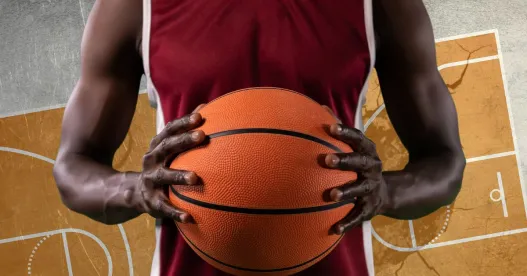As discussed in part one of this blog series, the landmark decision by the United States Supreme Court in the Alston case effectively paved the way for collegiate athletes to profit from their own name, image, and likeness (“NIL”). While many states quickly enacted legislation addressing NIL, it remains to be seen whether and how NIL will be legislated at the federal level.
State Law Addressing NIL
As of July 8, 2022, 29 states have passed legislation regulating or otherwise addressing how student-athletes can profit from their name, image, and likeness. Of those, 24 such laws are currently in effect[1]. Those that are not yet in place are slated to take effect by July 2023 at the latest[2]. An additional 10 states have proposed legislation currently pending in various stages of the legislative process[3].
State NIL laws share certain common characteristics, particularly in terms of the restrictions placed on student-athletes. One common restriction limits the duration of contracts; many laws provide that contract lengths can’t extend past the time the athlete participates in collegiate athletics at a particular institution.
Another common restriction forbids NIL activity from being tied to athletic performance; in other words, players cannot enter into deals that are contingent on their athletic participation or achievement. This is essentially a legal bar on pay-for-play, one of the prohibitions imposed by the NCAA in their interim policy.
Furthermore, many NIL laws allow institutions the flexibility to place their own school-specific restrictions on the deals their student-athletes enter into. For instance, allowing schools to restrict the athlete’s use of team logos for their own name, image, and likeness activity. Less common, some laws impose restrictions prohibiting student-athletes from contracting with specific industries, such as adult entertainment, alcohol, tobacco, and firearms, to name a few. Regardless, most academic institutions prohibit association with these sorts of industries by way of their own NIL policy.
NIL legislation is new and is not without criticism or concern. For instance, with a number of different laws across various states, some are less restrictive and arguably more student-athlete-friendly than others. As such, there is a general concern that a particular state’s NIL law might be the determinative factor on whether a student-athlete decides to attend a school within that state, i.e., a student might choose to attend a school within a state with a less restrictive NIL law.
The state of Alabama serves as an illustrative example. Alabama was one of the first states to pass an NIL law, and did so prior to the introduction of the NCAA’s interim policy, which many anticipated would be highly restrictive. Alabama accordingly sought to make its state law less restrictive than what they anticipated from the NCAA. Such wasn’t the case, however, as the NCAA’s NIL rules ended up being more flexible than Alabama’s NIL law. As a consequence, Alabama has since repealed its law and now simply follows the NCAA’s interim policy. According to Representative Kyle South, who sponsored the bill to repeal the Alabama law, NIL legislation stricter than the NCAA interim policy would put them at a disadvantage in the recruiting process.
Lawmakers in Louisiana, Mississippi, Missouri, Tennessee, and South Carolina have similarly followed Alabama’s lead. These states have either amended or suspended their initial NIL laws. A number of the amendments remove an institutional involvement prohibition which barred schools from engaging with third-parties in facilitating deals for their college-athletes. College coaches and athletic officials in these states can now work with third-parties to help procure NIL activities for their players, effectively allowing them to become part of the NIL process.
Federal Law Addressing NIL
Due to concerns regarding potential unfairness in the recruiting process, there have been calls for a uniform federal law, including from the NCAA which has expressed a desire for a federal framework around NIL.
NCAA president Mark Emmert testified before Congress that there are “‘many challenges and concerning trends. These concerns, if not addressed soon, may be very difficult to reverse’…. [t]he ‘patchwork’ of state laws fails to provide uniform protections for college athletes nationwide and creates an uneven playing field”[4].
Since 2019, eight federal laws have been introduced, but none has garnered enough support sufficient for passage. The most recent NIL bill, however, suggests that a continued interest exists in getting some sort of federal legislation in place. The Amateur Athletes Protection and Compensation Act was introduced by Senator Moran of Kansas in February 2021, and has since been referred to committee. Notably, the bill would “[p]rohibit the NCAA, athletic conferences or schools from rendering an amateur intercollegiate athlete ineligible on the basis of entering into a contract or receiving covered compensation” for NIL rights. Such legislation would be unprecedented, as it would explicitly strip the NCAA and educational institutions of any authority in declaring a student-athlete “ineligible” on the basis of their NIL activities. This would effectively nullify any force that the current NCAA interim NIL policy has, leaving the matter largely up to federal law.
Additionally, the Uniform Law Commission (“ULC”) has also chimed into the discussion. ULC members are practicing lawyers “appointed by state governments as well as the District of Columbia, Puerto Rico, and the U.S. Virgin Islands to research, draft and promote enactment of uniform state laws in areas of state law where uniformity is desirable and practical.” Less than a month after the Alston ruling, the ULC drafted the Uniform College Athlete Name, Image or Likeness Act (the “Act”). To date, the Act has been introduced as a bill in both the District of Columbia and Wisconsin.
While many states were quick to enact NIL legislation as soon as the Alston ruling came down, some are skeptical as to whether the lack of uniformity amongst these laws will bode well for the world of NIL in college athletics. Amongst these critics, the NCAA has voiced its concerns the loudest articulating the fear that a mix of inconsistent state laws will result in uncertainty, if not unfairness in the recruiting process. Notwithstanding this concern, there still is no federal law in place and it remains to be seen whether one will be passed.
The third and final part of this blog series will highlight the ways in which schools, corporations, and college players themselves have engaged in the NIL space.
FOOTNOTES
[1] The following states have enacted legislation addressing NIL that are currently in effect: Arizona, Arkansas, Colorado, Connecticut, Florida, Georgia, Illinois, Kentucky, Louisiana, Maine, Mississippi, Missouri, Nebraska, Nevada, New Mexico, North Carolina, Ohio, Oklahoma, Oregon, Pennsylvania, South Carolina, Tennessee, Texas, and Virginia.
[2] The following states have enacted legislation addressing NIL that are not yet in effect, but soon will be: California (Jan. 1, 2023), Maryland (July 1, 2023), Michigan (Dec. 31, 2022), and Montana (June 1, 2023). New Jersey is the single exception; its law will take effect in August 2025.
[3] The following states have proposed legislation addressing NIL: Delaware, Iowa, Kansas, Massachusetts, Minnesota, New York, Rhode Island, Vermont, West Virginia, and Wisconsin.
[4] Maria Carrasco, Congress Weighs In on College Athletes Leveraging Their Brand, Inside Higher Ed (Oct. 1, 2021), https://www.insidehighered.com/news/2021/10/01/congress-holds-hearing-creating-federal-nil-law.
Ezzat Nsouli contributed to this article.




 />i
/>i
